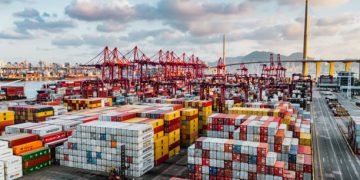The Brazilian government has introduced a comprehensive program aimed at supporting exporters who have been significantly affected by recently imposed tariffs from the United States.
The initiative, called “Sovereign Brazil”, establishes a credit line of 30 billion reais ($5.5 billion) to provide immediate relief to companies that rely heavily on international sales. Officials explained that the program is designed to safeguard Brazil’s export competitiveness while cushioning businesses from the sudden cost pressures brought on by higher duties.
Additional measures include the postponement of tax obligations for companies impacted by the tariffs, the allocation of 5 billion reais ($926 million) in tax credits for small and medium-sized enterprises until the end of 2026, and broader access to insurance covering cancelled export orders. The government also announced that it would promote domestic procurement of goods that are unable to reach foreign markets due to the trade restrictions.
These measures take effect immediately but will remain in place for only four months unless Congress extends the package. Economic analysts note that while the short-term assistance provides important breathing space for exporters, longer-term solutions may be necessary if trade tensions persist.
President Luiz Inácio Lula da Silva highlighted the importance of resilience in the face of economic pressures, stating that challenges should be treated as opportunities for innovation and new strategies. The government has framed the initiative as a way to both stabilize affected industries and encourage diversification in export markets.
The impact of the tariff policy has been felt across multiple sectors, with the beef industry singled out as particularly vulnerable. Industry representatives warn that the increased costs could make exports to the U.S. market financially unsustainable, potentially leading to reduced production and job losses in one of Brazil’s most important export segments.
Observers suggest that the government’s actions demonstrate a proactive approach to protecting Brazil’s economic interests while signaling its intent to maintain stability within the export sector. The coming months will be critical as industries adjust to the new trade landscape and policymakers evaluate whether additional measures will be required.
#SupplyChainNews #BrazilEconomy #GlobalTrade #ExportSupport #TariffsAndDuties















